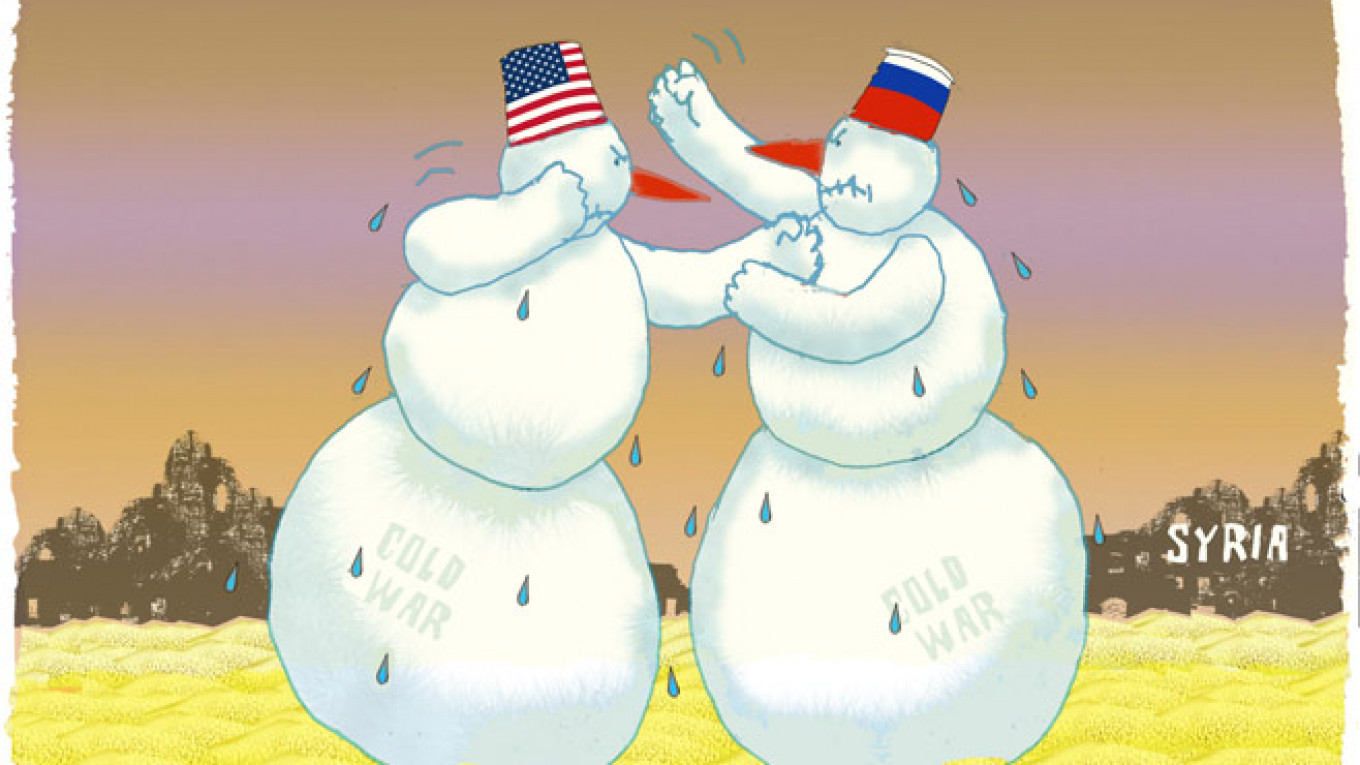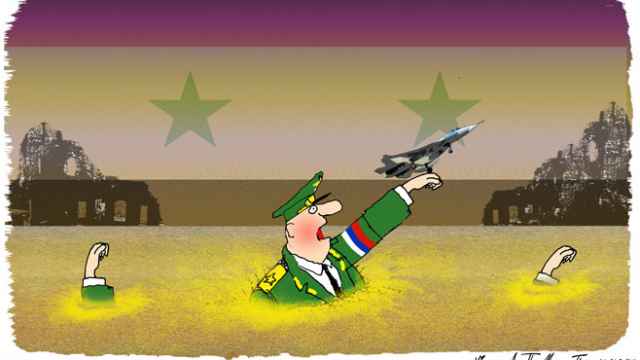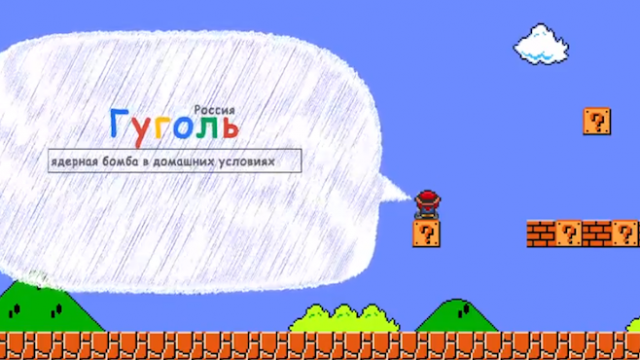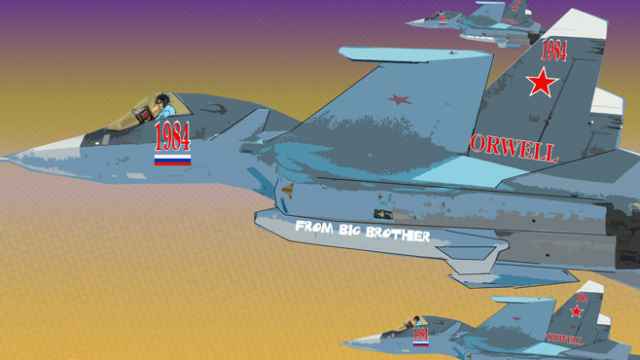Does anyone still doubt that a new Cold War is possible? An obvious confrontation exists between Russia and the West, and it is a confrontation that defies resolution through either military action — they both hold nuclear weapons — or diplomatic channels.
Most surprising is the way this confrontation has taken the form of Cold War-style proxy war. Even while Russian state-controlled television broadcasts endless footage of Russian aircraft bombing their targets and triumphant reports by the Syrian military, the Western press presents a very different picture: footage of scorched tanks that Russia had delivered at such trouble and expense to the beleaguered army of Syrian President Bashar Assad.
What's more, field commanders of Syria's so-called "moderate opposition" — whom Iranian soldiers, Hezbollah and government army troops are all attacking now — do not hesitate to report that they destroyed the tanks using the latest anti-tank systems from the United States.
Back in the 1980s, Moscow and Washington armed rival groups fighting countless civil wars in Angola, Mozambique, Nicaragua and elsewhere, always careful to avoid direct confrontation for fear of starting a nuclear war.
The parallels between that Cold War and today's U.S.-Russian conflict are striking. Even the details match, creating a distinct sense of deja vu. For example, the Washington Times newspaper reported that senior Cuban military officials are considering sending experts to Syria because their troops are especially skilled at driving Russian tanks. Recall that Cubans comprised the main strike forces in ground operations in Angola, Mozambique and Nicaragua.
Even today's diplomacy replicates that of the early 1980s, with each side making increasingly "public" diplomatic moves, not with the goal of reaching agreement on some contentious issue, but to further confound the "enemy." The meeting between U.S. President Barack Obama and President Vladimir Putin on the eve of the UN General Assembly session — and that Moscow practically forced on Washington — convinced the U.S. administration that Russia only uses such contacts for propaganda purposes and that they hold no practical value.
As a result, the White House ignored Putin's offer to send a high-level delegation led by Prime Minister Dmitry Medvedev to the U.S. to discuss the situation in Syria. In response to this affront, the Russian president publicly stated that his U.S. partners "have mush for brains."
Putin and his subordinates never tire of repeating that Moscow requested Washington to provide the exact coordinates of its Islamic State targets in Syria as well as the location of the "moderate opposition" forces that Russia should not attack.
The Kremlin strongly denounces the White House for refusing to provide such data, pretending not to understand that such exchanges only take place when both sides implicitly trust each other. How could Washington provide Moscow with the locations of the "moderate opposition" when the Russian military could pass that information to Assad's army? How could the U.S. provide Islamic State targets when that would risk revealing the technical and covert methods used to gather the information?
This calls to mind how Soviet leaders would occasionally trumpet peace programs that they knew were unacceptable to the West simply so they could curse the "warmongers" in Washington for rejecting them.
For its part, the United States is responding in the same spirit as the first Cold War. White House spokesman Josh Earnest used deliberately insulting language in commenting on Washington's refusal to receive the Russian delegation headed by Medvedev.
"It's not particularly surprising to me that President Putin would resort in some desperation to try to send the second highest ranking official in the Russian government to the United States to try to convince us to join them. But the fact is, that is a request that's fallen on deaf ears …" he said.
Pentagon chief Ashton Carter went even further, saying: "From the Kamchatka peninsula through south Asia, into the Caucasus and around to the Baltics, Russia has continued to wrap itself in a shroud of isolation."
The U.S. secretary of defense was paraphrasing former British Prime Minister Winston Churchill's famous "Iron Curtain" speech in which he said, "From Stettin in the Baltic to Trieste in the Adriatic, an iron curtain has descended across the Continent." It was that speech in 1946 that marked the start of the first Cold War, and it seems that we are witnessing the birth of the second. Carter's words leave no room for doubt on this score: "We will take all necessary steps to deter Russia's malign and destabilizing influence, coercion and aggression," he said.
Those who today are so happy about Russian precision bombing in Syria should stop to consider the inevitable consequences of those actions.
Alexander Golts is deputy editor of the online newspaper Yezhednevny Zhurnal.
A Message from The Moscow Times:
Dear readers,
We are facing unprecedented challenges. Russia's Prosecutor General's Office has designated The Moscow Times as an "undesirable" organization, criminalizing our work and putting our staff at risk of prosecution. This follows our earlier unjust labeling as a "foreign agent."
These actions are direct attempts to silence independent journalism in Russia. The authorities claim our work "discredits the decisions of the Russian leadership." We see things differently: we strive to provide accurate, unbiased reporting on Russia.
We, the journalists of The Moscow Times, refuse to be silenced. But to continue our work, we need your help.
Your support, no matter how small, makes a world of difference. If you can, please support us monthly starting from just $2. It's quick to set up, and every contribution makes a significant impact.
By supporting The Moscow Times, you're defending open, independent journalism in the face of repression. Thank you for standing with us.
Remind me later.







